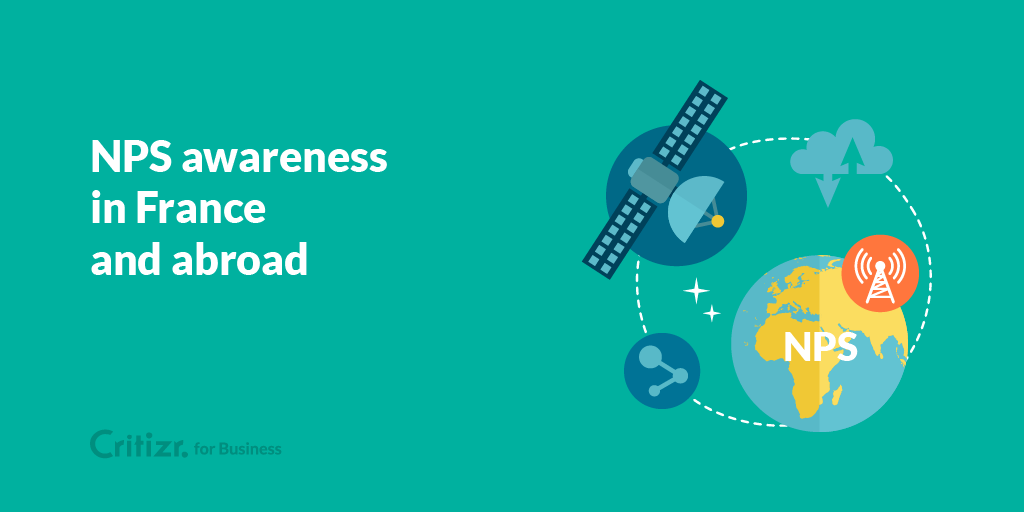
Solutions
Solve your most critical customer experience challenges

International Customer Success Manager
Sorry, what did you say? You haven’t heard of NPS? A Net Promoter Score, or NPS calculator, is a customer satisfaction indicator often used by large companies. It’s already well-established across English-speaking markets and is gaining popularity in France. However, it has come up against opposition as some people have doubts about its relevance here in France.
NPS has held a strong presence and been used extensively in English-speaking countries for several years now. As NPS is now the norm in these countries, companies are well-accustomed and it’s very relevant from the consumer’s point of view. It is also an effective promotional tool for brands who aren’t afraid to use it to its full advantage. NPS scores from large companies are classed as public information and can be accessed by all consumers.

DOWNLOAD THE E-BOOK : Discover the NPS : definition, calculation and collection
In France, NPS has gradually found its place among the vast array of indicators available to research or marketing companies. As such, it is being scrutinised more and more by large companies in every sector.
Nevertheless, considering the lack of promotion on NPS by companies and that there is currently no benchmark in France on the subject, should companies bear the “French exception” in mind? Remember that the French are renowned for complaining and being dissatisfied! At the time of writing this post, a consumer who gives 7 or 8/10 as an answer thinks they’ve given a good review. But this is of no use to the company as it would be considered “passive” on the official NPS scoring scale.
As such, there wouldn’t be enough “ambassador” customers scoring 9 or 10/10 compared to the number of “detractors” giving scores from 0 to 6/10. It’s only logical that the NPS score doesn’t go in the brand’s favour. In this specific case, it’s difficult for a French company to realistically compare itself to international competitors or to one of its branches in Britain or the US.
This fact gives those opposing NPS a case to back up their arguments on the relevance of the indicator, particularly the score (the difference between the % of promoters and the % of detractors): inadequate scientific foundation, too simple of a model, and the fact that many research centres believe that there is a genuine difference between the intent behind a recommendation and the person’s actual behaviour. What's more, the recommendation is not always as valued and will never have the same impact as one positive customer on another.
Regarding the score calculation, results from 0 to 6 aren’t given any distinction or weighting despite the significant gap between them. As a result, a score of 60+ can be obtained numerous ways. We can obtain an NPS score of 60 by having 80% “promoters” and 20% “detractors” or 60% “promoters” and 40% “neutrals” (0 detractors).
Although the Net Promoter Score is a very popular tool in English-speaking countries, it seems less noteworthy here in France. Those opposed don’t think it’s suited to the French and their complaining habits. However, it is a very useful indicator to measure customer satisfaction when fairly analysed and results are used to their full advantage through targeted marketing campaigns.
Hear about our upcoming events and read the latest success stories from our clients.
